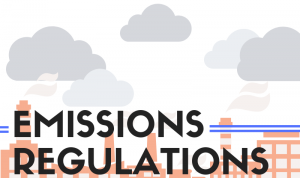Global warming: Should you be worried?
February 4, 2019
After trying to save his home from the Woolsey Fire on Nov. 9, Ethan White was forced to abandon his house in Malibu, California. His wife, Nikki, had already fled with their two children, aged five and two, earlier that day. As the flames destroyed his home, White with a group of his neighbors.
“We were talking about all the good times we had there, our kids learning to ride bikes, all the memories,” he said to the Malibu Surfside News. “We sat there watching our houses burn, almost like sitting around a campfire. It was surreal. Totally unworldly.”
White is one of the thousands of people affected by the California wildfires, or rather global warming.
Living in the United States, it’s easy to believe that climate change doesn’t matter. It’s easy to think that it’s a distant “thing” that won’t affect you or a problem that will go away on its own. And if you think this, you’re definitely not alone.

A 2016 study by the Yale Program on Climate Change Communication reveals statistics for perceptions on global warming in the United States. The data is provided by the Yale Program on Climate Change Communication.
In fact, a study from 2016 conducted by the Yale Program on Climate Change Communication found that, on average, an estimated 70 percent of adults believe global warming is happening, approximately 58 percent are worried about global warming and only an estimated 40 percent think global warming will harm them personally. Similarly, 31 percent of respondents of a poll of Dougherty students were neutral about global warming harming them personally.
Are these perceptions on global warming justified? Is it really something we need to worry about?
According to AP Environmental Science teacher Mrs. Annie Nguyen, it is.
“[Global warming] is a scientific fact. It is not a theory that is still up for debate. The majority of countries accept climate change and global warming as fact,” Nguyen said. Its effects are already being felt worldwide, including in California.
With increasing temperatures, melting glaciers, rising sea levels and stronger and more frequent hurricanes, it’s clear global warming has affected the world. For California, the symptoms of global warming has most clearly manifested itself in the form of wildfires.
In fact, the 2018 wildfire season in California was the most destructive wildfire season on record. While some people, like White, were affected by the Woolsey Fire, others, such as those in the city of Paradise, were devastated by the Camp Fire.
“Less than 12 hours after it started, the Camp Fire has traveled about 17 miles, burning an area of nearly 55,000 acres,” the New York Times wrote.
The Camp Fire killed 86 people and displaced thousands; wildfires such as these have direct ties to global warming.
“We in California are also seeing climate change refugees if you think about the people who used to live in the city of Paradise and are now relocated and displaced in Chico. People who already live in Chico are being impacted cause there are all these new people, like 20,000 people, who suddenly are displaced into Chico,” Nguyen explains. “People who lost their homes are now living in a completely different place. Everyone’s living in hotels, or they’re living in a spare room. They’re living in this temporary situation that is probably going to become more long term.”
As more greenhouse gases are trapped in our atmosphere from burning fossil fuels, global temperatures are rising and moisture and precipitation patterns are changing, with wet areas becoming wetter and dry areas becoming drier. Due to these hot, dry conditions created from climate change, the wildfire seasons are expected to lengthen and more individual wildfires are projected to become severe. According to research from the Union of Concerned Scientists, the average number of large wildfires (greater than 1,000 acres) between 2000 and 2012 was approximately 250, a stunning increase from an average of 140 large wildfires between 1980 and 1989.
These wildfires are just one of many ways that people across the globe could be affected by climate change. However, not all effects are as obvious or direct as a wildfire.
According to the Intergovernmental Panel on Climate Change, an increasing frequency of droughts and floods will negatively affect crop production. With declining production but growing demand, prices in markets will increase. In Australia, for example, New South Wales has suffered from a severe drought for the last five years. With evidence of changing rainfall patterns, more and more Australians view this as a result of climate change. The Worldwatch Institute has stated that the economic hardship in rural communities, crop failures and resulting increase in food prices are “forcing the country to reassess its approach to climate change and to consider increasing food imports, a move that would drive prices up further.” In this way, increasing food prices is one way global warming has and will continue to affect millions of people.
“[Climate change] is a global problem, and everyone is a global citizen. The more people that are aware of it, maybe the more credence will be given to the fact that we can’t ignore it,” Ms. Sheppel, a biology teacher at Dougherty, said.
Whatever its impacts, as global warming continues to worsen, its devastating effects will only continue to grow in magnitude and affect a larger number of people — it is something to worry about, and it will harm people personally.
“Whatever happens with global warming, it really impacts all of us, not one particular person over another. The earth is our home, and we need to protect it,” junior Aditi Bagepalli said.
In the meantime, with approximately only 40 percent of Americans knowing that global warming will harm them personally, it’s important that more people understand just how important climate change actually is and the urgency of our action. Successfully combating global warming requires a unified effort and gaining that popular support requires that people understand that global warming already impacts their life right now.
“There’s this saying, ‘The only thing that Americans fear is inconvenience.’ As long as it’s an inconvenient reality, one where it’s too much of a bother for us to change what we do, we’re not going to change it,” Nguyen said. “Unfortunately, that means that we have to make some of these solutions more convenient, more appealing, more pressing in a way that is emotional rather than rational for us.”
The YPCCC bears no responsibility for the analyses or interpretations of the data presented here.


